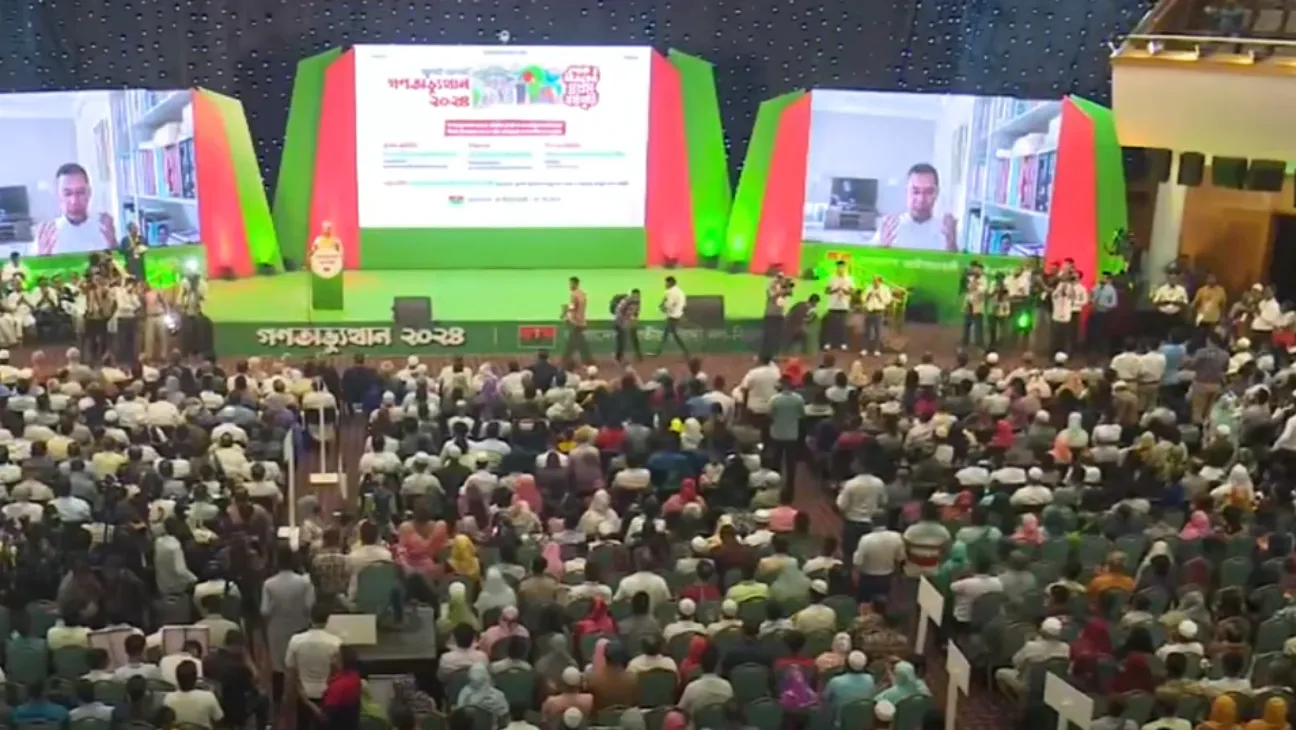Senior leaders of the Bangladesh Nationalist Party (BNP) raised concerns on Monday about the viability of proportional representation in the country’s political context, warning that such a shift could risk restoring authoritarian elements rather than strengthening democracy.
Tarique Rahman, the party’s acting chairman, made the remarks while speaking virtually at a discussion event marking the first anniversary of the July 2024 mass uprising. The event, titled “People’s Uprising 2024: National Unity and Democratic Journey”, was held at the China-Bangladesh Friendship Conference Center in Dhaka.
He suggested that while electoral reform is being debated, Bangladesh must ask a harder question: is proportional representation even suitable, given the country’s present conditions?
“There’s no harm in examining the model. But if this leads to a rehabilitation of fascism, then we must consider that risk,” Rahman said.
Rahman pointed to a bigger issue—the balance of power and how leaders answer to the public. He said the BNP’s goal is to shape a system where governance is driven by the people, not by a small circle of political elites, starting at the grassroots and reaching the top.
“We want to establish a permanent democratic structure where people decide who governs at every level,” he added.
Later in the program, BNP Chairperson Khaleda Zia appeared in a recorded message. She described the July uprising as a defining moment in the nation’s pursuit of democracy and urged supporters to act swiftly in translating that momentum into real structural reforms.
“There’s a real opportunity before us to institutionalize democracy. We must act without delay,” she said.
Referring to those killed or injured during the protests, Zia urged supporters not to let their sacrifices be diminished. She paid tribute to the victims, calling them “martyrs” and reaffirmed the party’s commitment to seeking justice.
“The fall of fascism happened through a united student and public movement. We must preserve their honor and ensure their voices are not forgotten,” she said.
The anniversary event was attended by relatives of those killed, injured protest participants, and political representatives from other parties. Their testimonies and speeches preceded the virtual participation of BNP leaders.
The party leadership presented the gathering not just as a memorial, but as a turning point. A moment to reflect, and perhaps more urgently, to strategize.
The BNP is under fire from all sides as it champions reforms. The problem is, it’s doing so against a backdrop of deep political division and widespread distrust in the entire system.
Whether the party can overcome the inevitable resistance to turn its vision into reality is now the central challenge.
The real message from Rahman and Zia wasn’t complicated: let the people decide, not the powerful. You could hear it in Khaleda Zia’s stark warning about unity. And in a country so divided, the fact that this is a point of near-universal agreement says everything.









